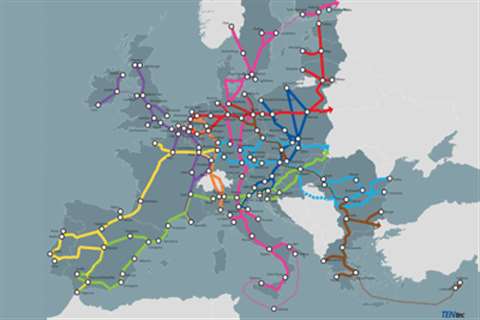MEPs back Connecting Europe Facility
28 November 2018

A vote on the Connecting Europe Facility (CEF) has been passed by MEPs for the 2021 to 2027 period to ensure continued development of trans-European transport, energy and telecom networks.
The CEF is a European Union fund for pan-European infrastructure investment in transport, energy and digital projects with the aim of greater connectivity between European Union member states.
FIEC (the European Construction Industry Federation) said that its recommendations on the CEF had been heard.
These were that the global budget should be increased by €1 billion, from €42 to almost €44 billion; and that the dedicated envelope for transport should be increased by €3 billion, from €30.5 to €33.5 billion.
FIEC also called for clarification on the dual-use of infrastructure (civil and defence use); and asked that the co-financing rates be maintained at a high level, between 30 and 50% on average.
The proposal must be confirmed in the European Parliament during the plenary session in December.
It was decided that a total budget of €43.85 billion should be reserved for the CEF, with €33.51 billion for transport projects and €7.68 billion for energy network projects. Also, the digital network development should receive funding of €2.66 billion.
Following the Parliament’s adoption of its position on the EU’s long-term budget (Multiannual Financial Framework - MFF 2021-2027), the Industry, Research & Energy (ITRE) Committee and the Transport & Tourism (TRAN) Committee set out their priorities for funding of transport, energy and telecommunication projects to stimulate future growth.
Rapporteur Marian-Jean Marinescu said, “Mobility is the basis for growth and jobs. The 2021 to 2027 CEF (2.0) will deliver more benefits for citizens.
“The two committees voted to increase the budget by almost €6 billion compared to the Commission’s proposal. CEF transport funds should go towards the completion of the TEN-T (Trans-European Transport Network) corridor, bringing better connectivity and accessibility to citizens across Europe.
He added, “We also agreed that the Commission must present a Framework Programme for the entire MFF period, including a timetable for work programmes and calls for proposals, to provide predictability and transparency, and allow EU Member States to prepare mature project proposals.”
Rapporteur Pavel Telicka said, “CEF is already performing well, but we are nonetheless struggling to deliver when it comes to cross-border projects and synergies. The next MFF is an opportunity to provide additional support to those carrying out such projects.
“By focusing on facilitating co-operation and increasing funding, we can support the promotion of cross-border projects and joint ventures, and simplify the framework for synergies.”

Telicka said that for the first time, the CEF would integrate a military dimension financed directly from the European Defence Fund, for the development of civilian transport infrastructure.
“The aim is to achieve rapid and seamless mobility, and to strengthen our capacity to respond to humanitarian crises and natural disasters,” he said.
Another rapporteur, Henna Virkkunen, said, “In the new CEF 2.0, we are looking for more synergies between the transport, energy and digital sectors. Taking into account the new climate targets, 60% of CEF funding should invest in projects contributing to climate actions.”
She said cross-border connections were crucial to complete the energy union and digital single market.
“The focus of trans-European energy infrastructure is increasingly on electrical interconnections, energy storages and smart grids.
“A significant new element in CEF 2.0 is the inclusion of cross-border renewable projects. In the digital connectivity infrastructure domain, one important element will be actions contributing to improving access to very high-capacity networks, providing gigabit connectivity, including 5G.”
Cohesion Fund
MEPs said they wanted the CEF fund to receive the €43.85 billion at constant (2018) prices, with €33.51 billion for transport – including an envisaged transfer of €10 billion (€11.26 in current prices) from the Cohesion Fund. It was decided that €5.77 billion (€6.5 billion in current prices) of transport project funding should go towards projects that could adapt the TEN-T networks with a view to enabling civilian-defence dual use of infrastructure, contributing to the development of the Defence Union.
MEPs stressed that they were ready to start negotiations with EU Ministers at any time to reach an agreement before the European elections in May.
The European Parliament plenary will now vote on the decision to start talks with EU Ministers, which can begin once their common position is agreed. MEPs have made it clear that they want to make as much progress as possible before the end of this legislative term.



